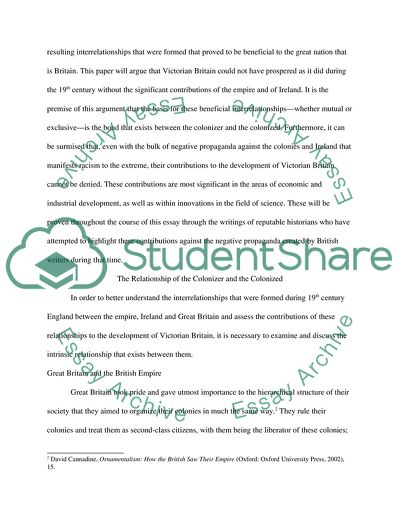Cite this document
(Unsung Contributions and Interrelationships: 19th Century British Coursework, n.d.)
Unsung Contributions and Interrelationships: 19th Century British Coursework. https://studentshare.org/history/1729246-british-society-and-culture-1780-1914
Unsung Contributions and Interrelationships: 19th Century British Coursework. https://studentshare.org/history/1729246-british-society-and-culture-1780-1914
(Unsung Contributions and Interrelationships: 19th Century British Coursework)
Unsung Contributions and Interrelationships: 19th Century British Coursework. https://studentshare.org/history/1729246-british-society-and-culture-1780-1914.
Unsung Contributions and Interrelationships: 19th Century British Coursework. https://studentshare.org/history/1729246-british-society-and-culture-1780-1914.
“Unsung Contributions and Interrelationships: 19th Century British Coursework”. https://studentshare.org/history/1729246-british-society-and-culture-1780-1914.


